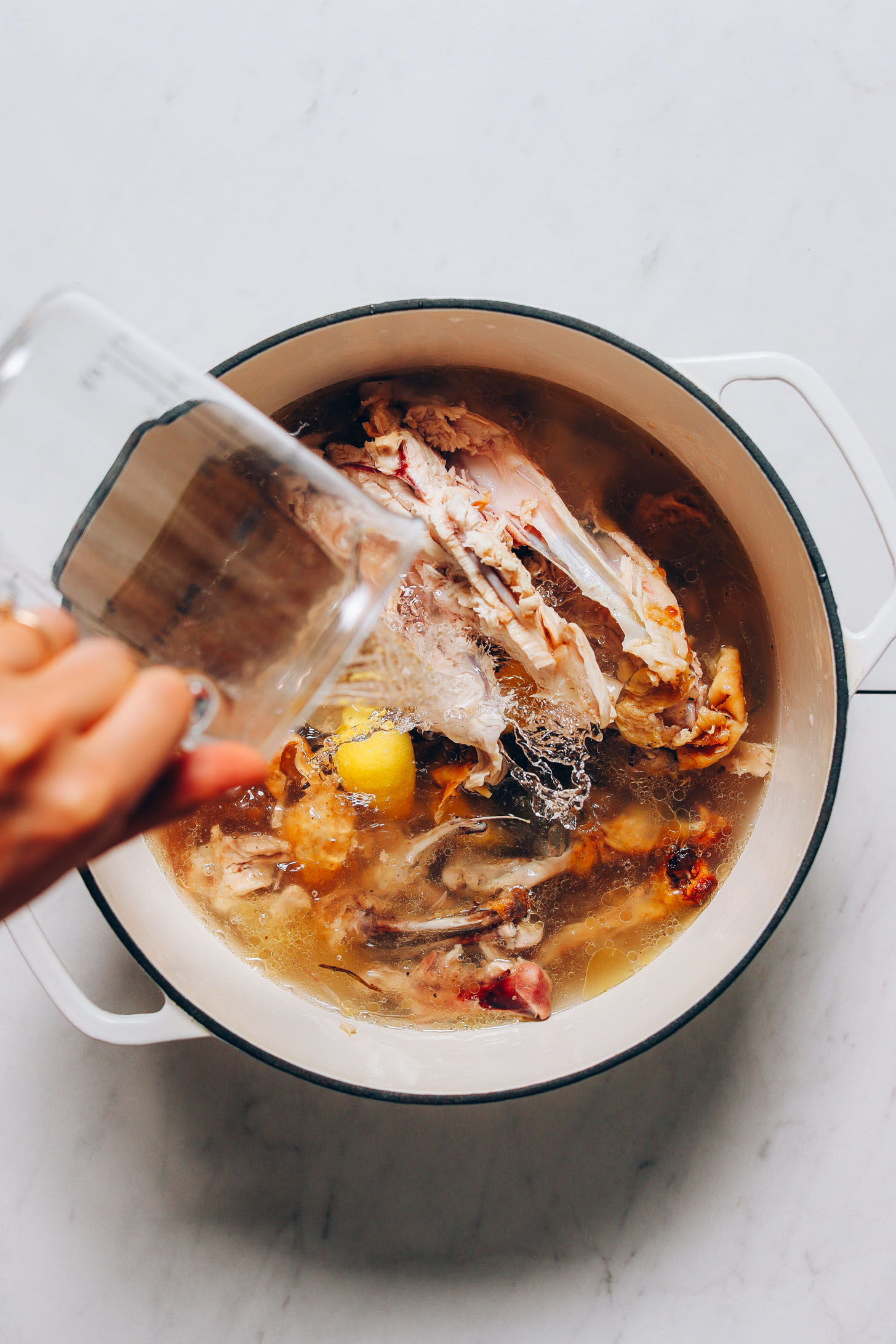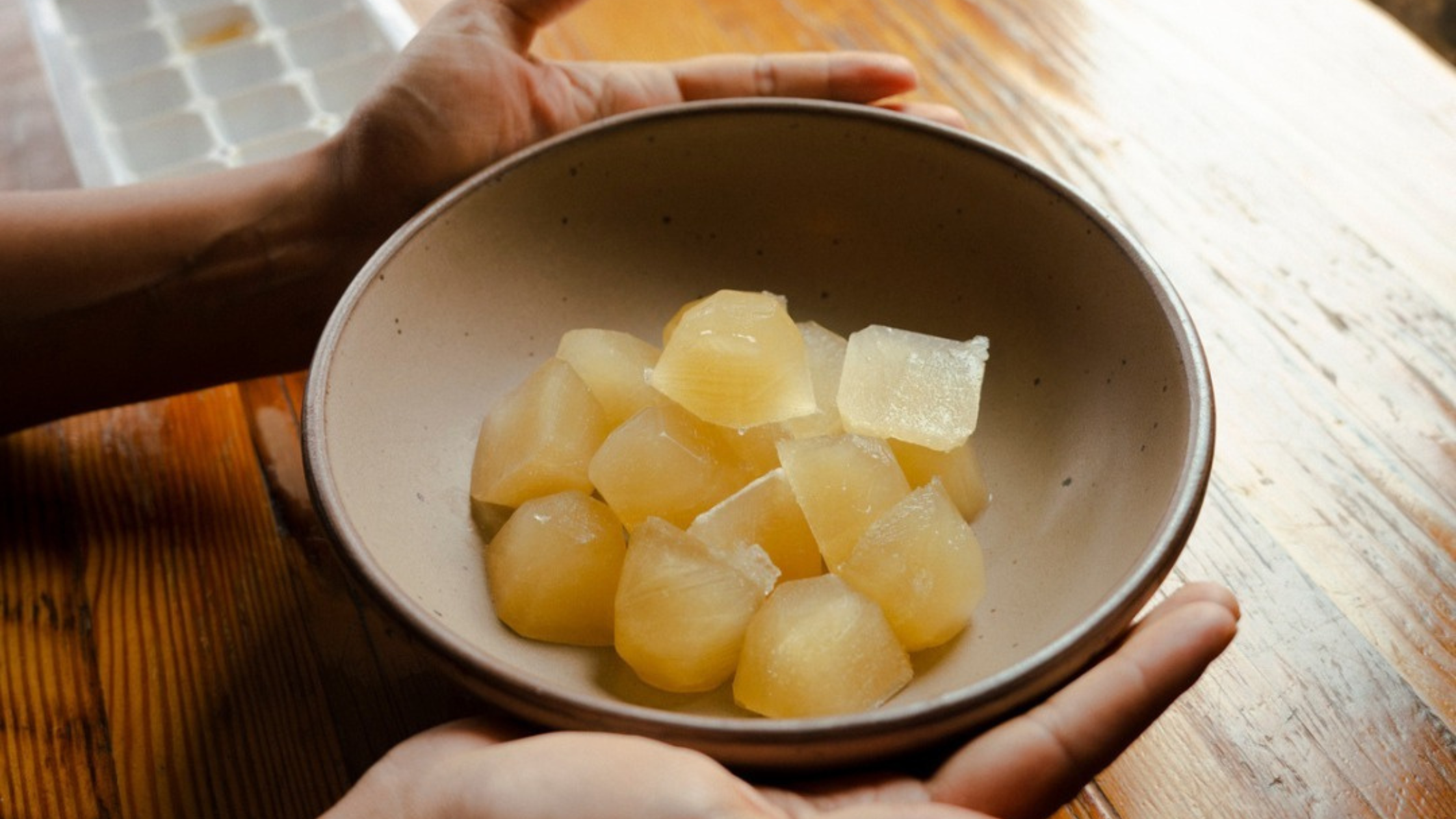Where to Get Bone Broth That’s High-Quality and Baby-Safe
Where to Get Bone Broth That’s High-Quality and Baby-Safe
Blog Article
The aImportance of Healthy And Balanced Food: Why Bone Broth Is a Wonderful Selection for Babies
Bone broth stands out as a nutrient-dense option, offering necessary vitamins and minerals that sustain development and growth. What are the best methods to present bone broth to your little one?
Nutritional Perks of Bone Broth for Newborns
When you introduce bone broth to your infant's diet plan, you're offering a nutrient-dense food that offers numerous health benefits. Packed with necessary nutrients, bone broth consists of calcium, magnesium, and phosphorus, which sustain your baby's expanding bones. It's also rich in collagen, helping in the growth of healthy and balanced skin, joints, and connective tissues.
Additionally, bone broth is an outstanding source of amino acids like glycine and proline, which play a significant function in overall growth and muscle mass growth. These nutrients assist promote a solid body immune system, setting a strong foundation for your infant's health and wellness.
In addition, bone broth is easy to digest, making it a mild alternative for your little one. By integrating this wholesome food right into their dishes, you're guaranteeing they get essential nutrients required for their general health. Go in advance and make bone broth a staple in your baby's diet regimen!
Just How Bone Broth Supports Digestion
Bone broth is loaded with necessary nutrients that can actually profit your child's food digestion. It advertises gut wellness and assists with nutrient absorption, making it a wonderful addition to their diet regimen. By integrating bone broth, you're establishing the phase for a much healthier digestion system.
Nutrient-Rich Make-up
One of the most nutrient-rich foods you can present to your baby's diet regimen is bone broth, which is packed with important minerals and amino acids that sustain healthy digestion. Rich in collagen, bone broth assists enhance your child's gut lining, making it simpler for their body to soak up nutrients. By including bone broth right into your infant's meals, you're offering them a wholesome food that nurtures their digestion system properly.
Advertises Gut Wellness
As you present bone broth into your infant's diet regimen, you'll locate it not just nurtures however likewise promotes digestive tract wellness successfully. Rich in gelatin, bone broth aids soothe the digestion tract, lowering swelling and sustaining a healthy and balanced digestive tract lining. This is important for babies, as a balanced gut environment lays the structure for overall health. Additionally, the amino acids discovered in bone broth, such as glycine, help in digestion and can help protect against typical stomach problems. By integrating this beneficial liquid, you're giving your infant with necessary nutrients that add to a thriving digestive system. Inevitably, a healthy gut can affect everything from immunity to mood, making bone broth a superb choice for your little one.
Aids Nutrient Absorption
Introducing bone broth not only supports intestine wellness yet also plays a considerable role in assisting vitamins and mineral absorption. When you provide your infant bone broth, you're offering a rich source of minerals and amino acids that boost their digestion procedures. The jelly in bone broth aids to relieve the digestive tract lining, enhancing its capability to absorb vital nutrients. This indicates that crucial nutrients from various other foods are extra efficiently utilized by your infant's growing body. Furthermore, bone broth consists of collagen, which supports the advancement of healthy and balanced cells and body organs. By incorporating this nutrient-dense fluid into your baby's diet regimen, you're guaranteeing they get the maximum take advantage of their dishes, promoting general health and health.
Enhancing the Immune System With Bone Broth

By integrating bone broth into your baby's diet regimen, you're giving an all-natural source of sustenance that advertises wellness. Take into consideration making bone broth a staple in your infant's meals, as it can play an important function in their immune health and wellness and development.
Easy Ways to Incorporate Bone Broth Into Infant's Diet regimen
Including bone broth into your infant's diet plan can be simple and fulfilling. You can also use bone broth as a base for soups or stews that you prepare for the family, see this here ensuring your baby gets a taste of tasty, healthy meals.
An additional alternative is to offer bone broth by itself. Warm it up and supply it in a sippy mug or little bowl-- it's a fantastic method to introduce new flavors. If your baby takes pleasure in grains, think about cooking rice or quinoa in bone broth as opposed to water for added sustenance. You can freeze bone broth in ice cube trays, making it simple to add a dice to different recipes whenever you desire. These techniques will certainly aid your infant enjoy the benefits of bone broth effortlessly!
Homemade vs. Store-Bought Bone Broth: What to Select
Which is better for your child: homemade or store-bought bone broth? Home made bone broth uses you complete control over the components. You can select top notch bones, organic veggies, and herbs, ensuring your infant obtains one of the most nutrients without ingredients or chemicals. Plus, making it in your home can be a rewarding experience, allowing you to bond with your baby while preparing wholesome food.
On the various other hand, store-bought options are hassle-free and save you time. Nonetheless, they often contain preservatives and may not match the next depth of flavor and nutrition you obtain from homemade broth. If you go with store-bought, seek brand names that are natural and complimentary from ingredients.
Inevitably, if you have the time and sources, homemade bone broth is the exceptional choice for your infant's health. If you're short on schedule, pick a quality store-bought alternative as a backup.
Age-Appropriate Bone Broth Serving Recommendations
As your baby grows, it's vital to tailor bone broth serving recommendations to their developing stage. For babies around 6 months, begin with a couple of spoonfuls of diluted bone broth (organic bone broth).
When your baby reaches around 8 months, you can serve it cozy in a sippy cup or include it to soft foods like purees. By the time your little one is around a years of age, consider offering bone broth as a standalone drink or mixing it into soups and stews. Simply see to it to maintain the broth low in sodium. Constantly keep an eye on for any responses, and consult your pediatrician if you have concerns about presenting brand-new foods. Enjoy this healthy enhancement to your baby's diet!
Various Other Healthy And Balanced Foods to Couple With Bone Broth for Babies
When you're looking to boost the nutritional worth of bone broth for your infant, think about matching it with nutrient-dense veggies like carrots and spinach. Whole grain alternatives, such as quinoa or wild rice, can also include texture and fiber. Additionally, integrating healthy and balanced protein resources like shredded chicken or lentils will complete the meal perfectly.

Nutrient-Dense Vegetables
Nutrient-dense vegetables are a fantastic addition to bone broth for babies, boosting both taste and nourishment. Integrating veggies like carrots, spinach, and pleasant potatoes can improve the vitamin and mineral content of your broth.
You can easily mix these vegetables into the broth or serve them as soft, cooked items alongside it. This not just introduces new tastes however likewise motivates your little one to enjoy a selection of nutrients. By pairing nutrient-dense veggies with bone broth, you're laying the foundation for a healthy diet right from the beginning.
Entire Grain Options

Healthy And Balanced Protein Resources
Bone broth sets splendidly with numerous healthy protein sources, additionally enhancing your baby's diet. Attempt including soft, cooked lentils; they're nutrient-dense and stuffed with protein. You can additionally blend in shredded chicken or turkey, which are very easy for your little one to absorb. If you're searching for plant-based choices, consider mashed tofu or pureed chickpeas-- both give superb healthy protein without overwhelming tastes. Eggs, when introduced safely, are one more great selection; they're flexible and packed with nutrients. Ultimately, assimilating some well-cooked quinoa can add a wonderful structure and additional healthy protein. By incorporating these healthy protein sources with bone broth, you're providing your infant a well balanced, nourishing dish that sustains their growth and advancement.
Often Asked Inquiries
Can Bone Broth Cause Allergic Responses in Infants?
Yes, bone broth can create allergies in infants, particularly if they're delicate to certain active ingredients. Constantly consult your doctor prior to presenting new foods and screen for any indications of allergic reactions after feeding.
Exactly How Should Bone Broth Be Stored for Babies?
You should save bone broth in impermeable containers, either in the refrigerator for as much as a week or in the fridge freezer for as much as three months. where to get bone broth. Constantly thaw it properly prior to offering to your infant
Is It Safe to Provide Bone Broth to Premature Infants?
It's important to consult your pediatrician web link before presenting bone broth to early babies. They'll assess your baby's certain wellness demands and ensure it's secure, considering their special dietary needs and developing phase. Constantly prioritize professional suggestions.
What Are the Indications of Intolerance to Bone Broth in Infants?
When introducing bone broth, look for indicators like fussiness, breakout, diarrhea, or throwing up. If your infant reveals any one of these reactions, it's best to consult a pediatrician prior to continuing to provide it.
Can Bone Broth Be Utilized as a Meal Substitute for Newborns?
No, you should not make use of bone broth as a meal replacement for infants. It does not have important nutrients needed for their development. Instead, integrate it into their diet regimen alongside balanced meals for added nourishment and flavor.
Report this page